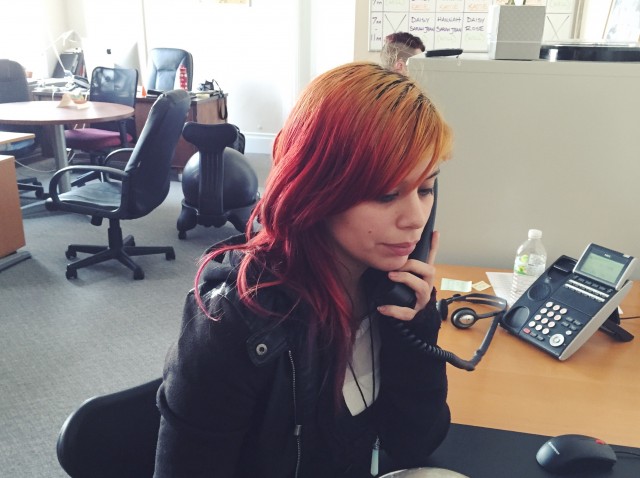
Editor's note: a warm line is a place where people struggling with mental illness, but not in an acute state of crisis, can call and talk to a trained counselor as long as they need to. As part our community health series Vital Signs, we caught up with Daisy Matthias, a counselor at San Francisco’s new warm line, in between phone calls.
By Daisy Matthias
The majority of the people call about anxiety, depression, loneliness, or even stress.
We’ll be there for as long as you need us. We don’t have a time limit. And other warm lines sometimes will have a time limit of 20 minutes, 30 minutes.
Every counselor has a history of dealing with mental health.
In my case, there was a moment I was very stressed out at my last job. I really just couldn't take it anymore. I was depressed, and since I worked overnight I had no one to call. I called a crisis line and I said, “I just want someone to talk to.” But they couldn't help me cause I wasn't going to commit suicide.